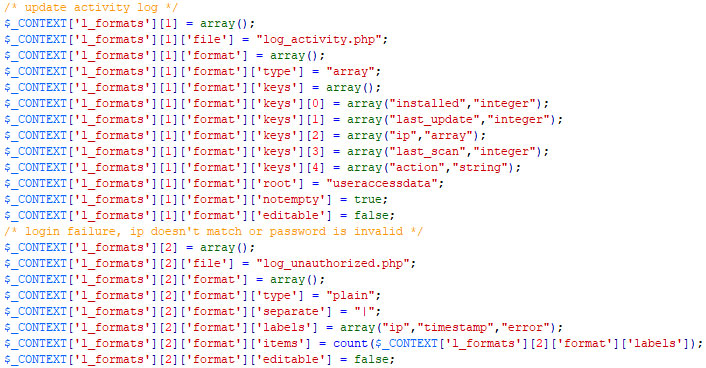- Carnivore - Predator
- Formerly known as THC HackSuite, Carnivore - Predator stands at the forefront of cutting-edge cybersecurity tools, redefining the landscape of penetration testing with unparalleled innovation. Designed to empower ethical hackers, security professionals, and enthusiasts alike, Carnivore - Predator is the ultimate Pentest CMS that puts you in command.
Log Manager Tool
In this documentation we will go through the functionality of the log manager tool.

This tool is used for managing files in the Logs folder. All of these log files are used for different log purposes and have different structures.
- view logs: dump content of a log file
- create a new logfile: creates a new log file with the proper settings
- delete a logfile: removes a log file, note that not all logs can be deleted as some are mandatory
- clean a logfile: gets rid of the content in a log file
- search logs: search for specific keywords in a log file, note that not all logs can be searched through and each log has specific search options
- create error query: this is a tool that allows you to build your own error queries which are essential when you need to build your own content for Carnivore
If you just want to change test server settings or create new test servers, please read this document.
Expanding Log Manager Tool:
You can add two types of logs to Canivore, plain text logs or arrays. Both have a different approach to their setup. The structure of logs can be found in the Data/logsdata.php file:
- type: plain text or array
- file: associated file in Logs folder
- root: applies to array specific logs, this is the root of the array which is in this case the $_CONTEXT['useraccessdata'] variable
- keys: first index is the key of the $_CONTEXT['useraccessdata'] variable, so in this case $_CONTEXT['useraccessdata']['installed'] is set. The second index is the type it expects: string, integer and array are supported
- editable: true if the file can be deleted, false if not
- notempty: true when file can't be emptied(in case of an array structure), false if you can use the clean file tool
- separate: separation character - only applies to plain text logs
- labels: structure of the log file - only applies to plain text logs
- items: amount of stats that will be logged - only applies to plain text logs
For basic log files you can just the create a new logfile option in this tool. These are mostly used for files that log a lot of data as they have almost no overhead. The array specific log files are best to be used for storing data such as statistics.
Known Issues:
N/A
